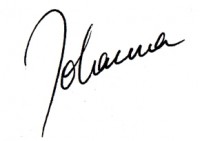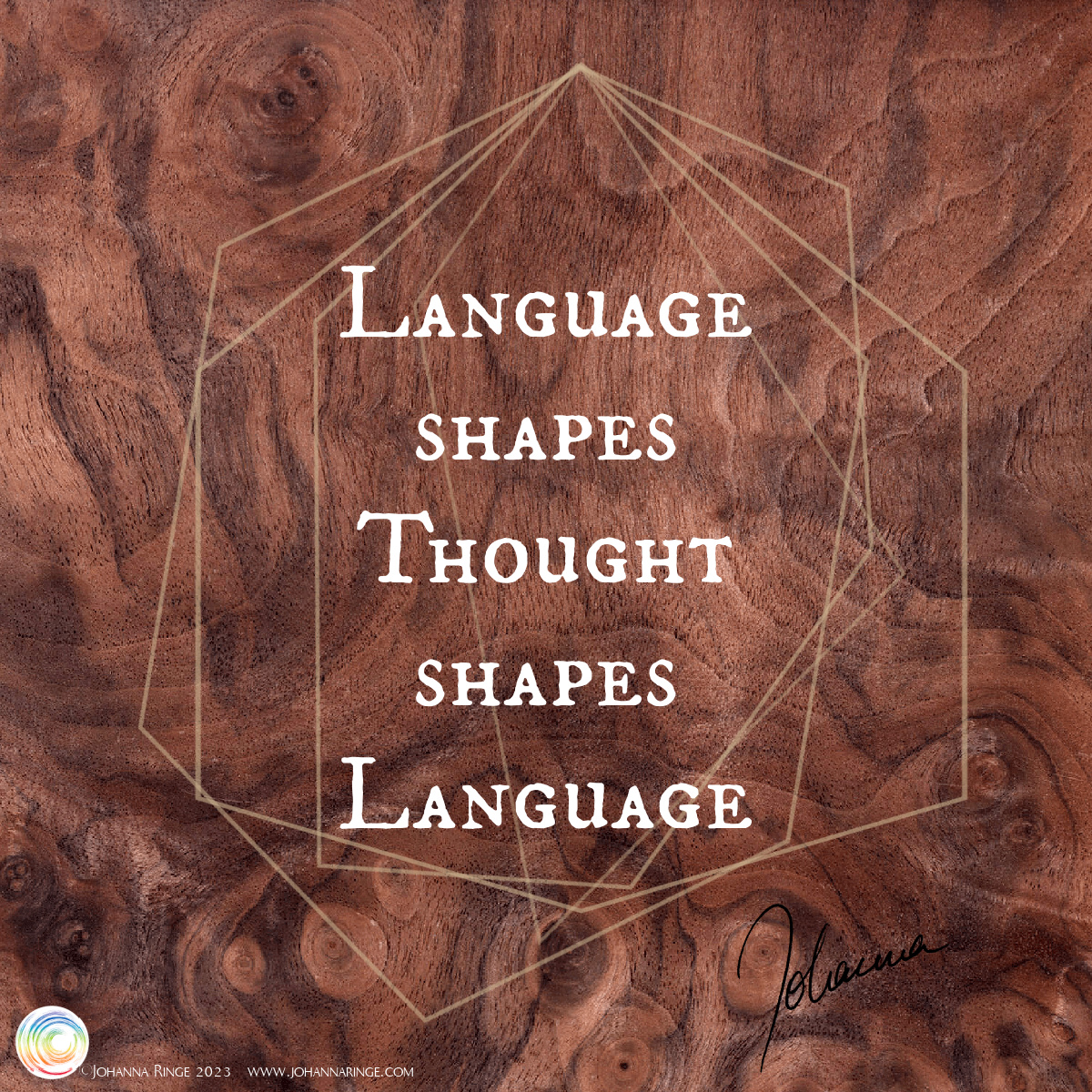Language influences our thinking. *
Even if this is a theory that is discussed and criticised vividly within linguistics, there are examples in every language known to me that confirm a strong interaction between the words we use and the thoughts they put in our heads.
If you explain to a woman that she is going through the menopause and that her various symptoms are completely normal, temporary signs of a profound change in her body, then she will get through this time more relaxed than if the menopause is declared to be a health disorder. It starts with the language: menopause is an accurate description, unspectacular and true to life. When the symptoms of the menopause are referred to as climacteric syndrome, the need for treatment is implied. (Incidentally, menopausal symptoms are strongly characterised by the cultural context).
Another example: an unmarried, sexually active woman is called…?
Well, right, there is no neutral, value-free word for such a woman in either German or English. There is the male bachelor, but female? I can’t think of a neutral solution! (Your ideas are welcome – I’m curious).
So, on the one hand, it’s obvious that language has a big influence in interpersonal relationships, but on the other hand, many people don’t seem to think enough about it. So many misunderstandings and injuries could be avoided by better use of the words available.
The world could be a friendlier place if we were all a little more aware of how we use language.
Here is a list of some of the questions you could ask yourself:
- What is my relationship to the other person?
Stranger? Acquaintance? Friend? Child? Respected person? - How does my counterpart feel about the topic?
Competent? Interested? Clueless? Disinterested? - In what context is the conversation taking place?
Teaching? Leisure time? At work? Dialogue? Lecture? - Is it oral or written communication?
Letter? Chance meeting? Job interview? Flyer? Contract negotiation? Workshop? - Are there any regional or cultural differences in behaviour?
Reservedness? Politeness? Directness? Cordiality? Restraint? - What is my personal way of communicating?
Am I direct, friendly, factual, humorous, warm-hearted, shy, aggressive? - Who is my counterpart?
Gender? Cultural background? Language skills (mother tongue or foreign language), age?
Does that seem excessive to you? Why? You unconsciously answer most of these questions yourself in every conversation. Many of them with prejudices because that’s how we humans are wired:
In every situation, we try to extrapolate what we don’t know. This makes it even more important to check whether our assumptions are correct.
By no means you should write a lengthy linguistic reflection before your visit to the bakery, but now that you have taken the time to read this article, you might want to look for a few answers to the above questions. Play through a few of your usual conversational situations or reflect on who your most frequent dialogue partners are.
The clearer we are about how we use language, the more often our communication will work.
I, for example, am very direct, often funny, and usually friendly, but unfortunately, still too often seem to assume that the person I am talking to is ignorant. As I am aware of this, I can work on it. In general, I realise that I don’t make any big differences in terms of context or relationship. So, when I find myself in an unfamiliar situation, hopefully I’ll take a moment to reflect on how I want to communicate.
Because our thinking definitely shapes our language.
Heartfelt, wherever you are,

P.S.: There is a very interesting book, „Native Tongue“ by Suzette Haden Elgin. She was a linguist, and the book is a feminist thought experiment on the influence of language… hard to digest at times, but full of food for thought.
* https://en.wikipedia.org/wiki/Linguistic_relativity


Language influences our thinking. *
Even if this is a theory that is discussed and criticised vividly within linguistics, there are examples in every language known to me that confirm a strong interaction between the words we use and the thoughts they put in our heads.
If you explain to a woman that she is going through the menopause and that her various symptoms are completely normal, temporary signs of a profound change in her body, then she will get through this time more relaxed than if the menopause is declared to be a health disorder. It starts with the language: menopause is an accurate description, unspectacular and true to life. When the symptoms of the menopause are referred to as climacteric syndrome, the need for treatment is implied. (Incidentally, menopausal symptoms are strongly characterised by the cultural context).
Another example: an unmarried, sexually active woman is called…?
Well, right, there is no neutral, value-free word for such a woman in either German or English. There is the male bachelor, but female? I can’t think of a neutral solution! (Your ideas are welcome – I’m curious).
So, on the one hand, it’s obvious that language has a big influence in interpersonal relationships, but on the other hand, many people don’t seem to think enough about it. So many misunderstandings and injuries could be avoided by better use of the words available.
The world could be a friendlier place if we were all a little more aware of how we use language.
Here is a list of some of the questions you could ask yourself:
Stranger? Acquaintance? Friend? Child? Respected person?
Competent? Interested? Clueless? Disinterested?
Teaching? Leisure time? At work? Dialogue? Lecture?
Letter? Chance meeting? Job interview? Flyer? Contract negotiation? Workshop?
Reservedness? Politeness? Directness? Cordiality? Restraint?
Am I direct, friendly, factual, humorous, warm-hearted, shy, aggressive?
Gender? Cultural background? Language skills (mother tongue or foreign language), age?
Does that seem excessive to you? Why? You unconsciously answer most of these questions yourself in every conversation. Many of them with prejudices because that’s how we humans are wired:
In every situation, we try to extrapolate what we don’t know. This makes it even more important to check whether our assumptions are correct.
By no means you should write a lengthy linguistic reflection before your visit to the bakery, but now that you have taken the time to read this article, you might want to look for a few answers to the above questions. Play through a few of your usual conversational situations or reflect on who your most frequent dialogue partners are.
The clearer we are about how we use language, the more often our communication will work.
I, for example, am very direct, often funny, and usually friendly, but unfortunately, still too often seem to assume that the person I am talking to is ignorant. As I am aware of this, I can work on it. In general, I realise that I don’t make any big differences in terms of context or relationship. So, when I find myself in an unfamiliar situation, hopefully I’ll take a moment to reflect on how I want to communicate.
Because our thinking definitely shapes our language.
Heartfelt, wherever you are,

P.S.: There is a very interesting book, „Native Tongue“ by Suzette Haden Elgin. She was a linguist, and the book is a feminist thought experiment on the influence of language… hard to digest at times, but full of food for thought.
* https://en.wikipedia.org/wiki/Linguistic_relativity